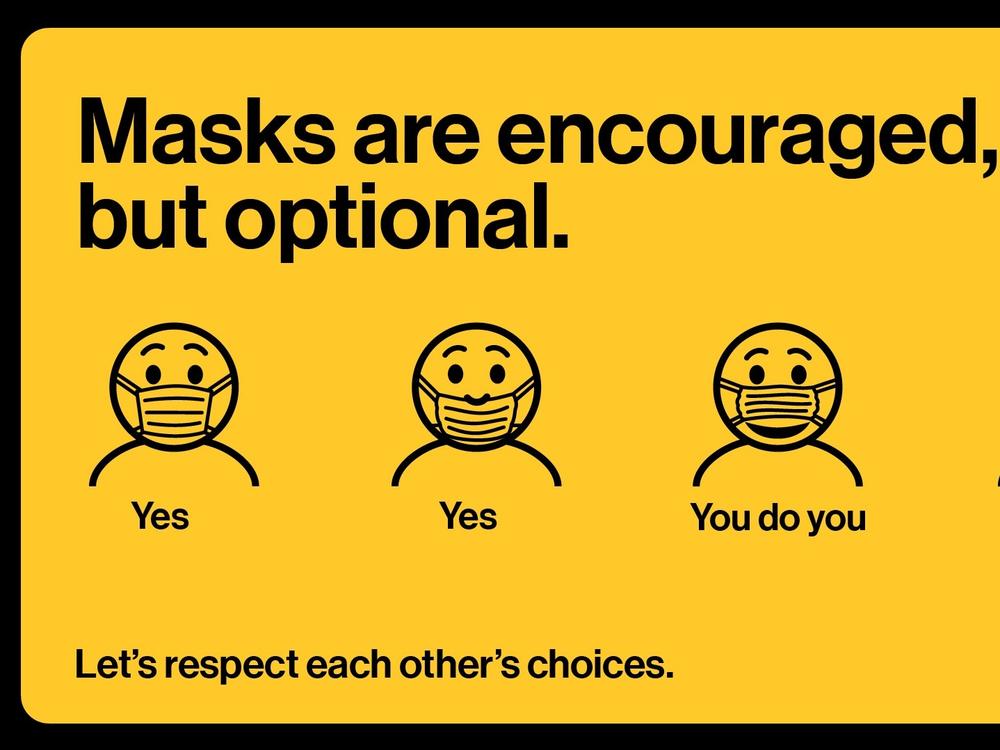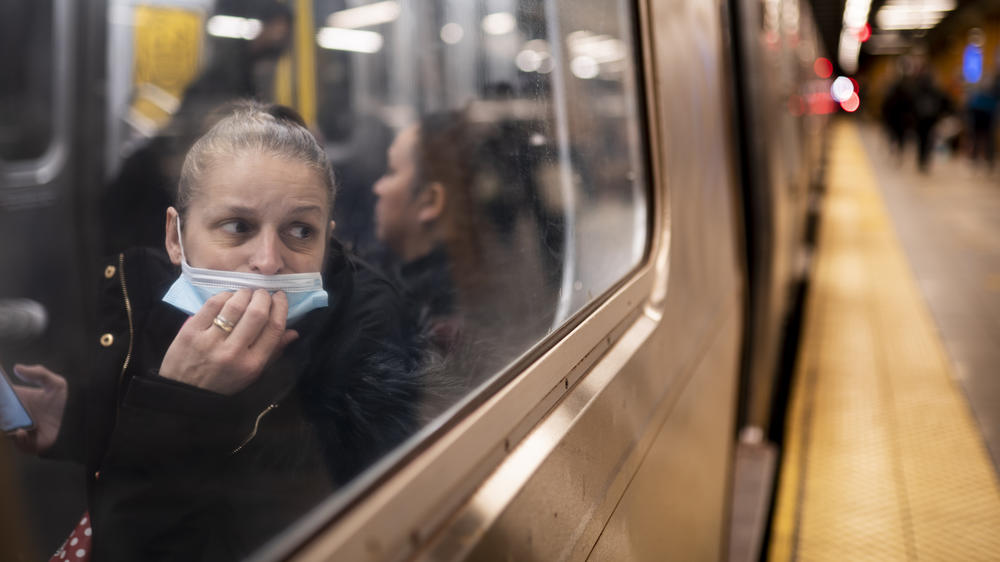Section Branding
Header Content
New York's subway now has a 'you do you' mask policy. It's getting a Bronx cheer
Primary Content
"Beginning today, masks are encouraged but optional" on subways, buses and regional trains, New York's Metropolitan Transportation Authority announced on Wednesday. Officials said the change reflects the latest health data.
Simple, right? After all, the MTA won praise during the pandemic for using clear, positive language to educate transit riders about staying safe. But that changed in a quintessential New York City minute when people saw the signs MTA used to explain the new policy.
The messages, in MTA's trademark yellow, urged people to respect anyone wearing a mask, or choosing not to — and also gave a jokey thumbs-up to improperly worn masks, incensing New Yorkers and health experts who saw it as a thumb in the eye to people who endured being an early global epicenter of the COVID-19 outbreak.
The backlash cites the threat omicron poses
"Whoever designed your poster should be fired. It's public endangerment and mask misinformation!!" said Dr. Eric Feigl-Ding, an epidemiologist, in replying to MTA's tweet about the change.
Critics of the new policy say it puts immunocompromised people at risk. They maintain that it's too early to drop masking mandates, noting that omicron and its BA.4 and BA.5 subvariants recently spurred the Centers for Disease Control and Prevention to urge people to get new booster shots.
The Center for Independence of the Disabled, NY said it is "disagrees and is disheartened" by the decision to lift the mask mandate on public transit.
New Yorkers also could be excused for feeling a bit of whiplash. One day before the MTA showed off its new signs, the city's health department stated, "New Yorkers: Masks are still required on public transit. All masks should cover the nose and the mouth."
Send in the memes
People panning MTA's new sign say it undermines the agency's earlier messaging, which reminded transit users that masks shouldn't be tucked under their chin or only cover their nose.
A flurry of memes soon emerged, purporting to apply the MTA's new approach to other situations. Mandates against smoking indoors or peeing in swimming pools, for instance, were translated into the slippery slope of "encouraged but optional."
During the pandemic, New Yorkers have repeatedly been told that they're "all in this together." Gov. Kathy Hochul echoed the idea as she tweeted out the MTA's new policy.
"Nothing says 'we're in this together' like 'you do you' on public safety messaging," Katie Mack replied to Hochul on Twitter.
The issue of when to mask isn't going away
Under the dire threat of the coronavirus, many people who live in densely populated areas came to see mask mandates as a shared inconvenience that saves lives. The compulsion to cover mouths and noses permeated people's lives, from their dreams to their corner store. But falling rates of new cases, deaths and hospitalization from COVID-19 this year have prompted officials to drop many mask mandates.
The latest data in New York City show those rates still decreasing, with daily averages of 1,921 cases, 63 hospitalizations, and five deaths.
The MTA had touted wearing masks as a sign of respect — an idea that found a home in New York and other big cities, where masks became one more ingredient in the complicated mix of individual choice and public accommodation that cities require.
So it perhaps comes as little surprise that when the MTA abruptly tinkered with that mix by telling people to just "do you," people revolted. As anyone who's ridden on MTA might attest, some fellow patrons are willing to take the idea of "you do you" far beyond the realm of face masks.
Copyright 2022 NPR. To see more, visit https://www.npr.org.



